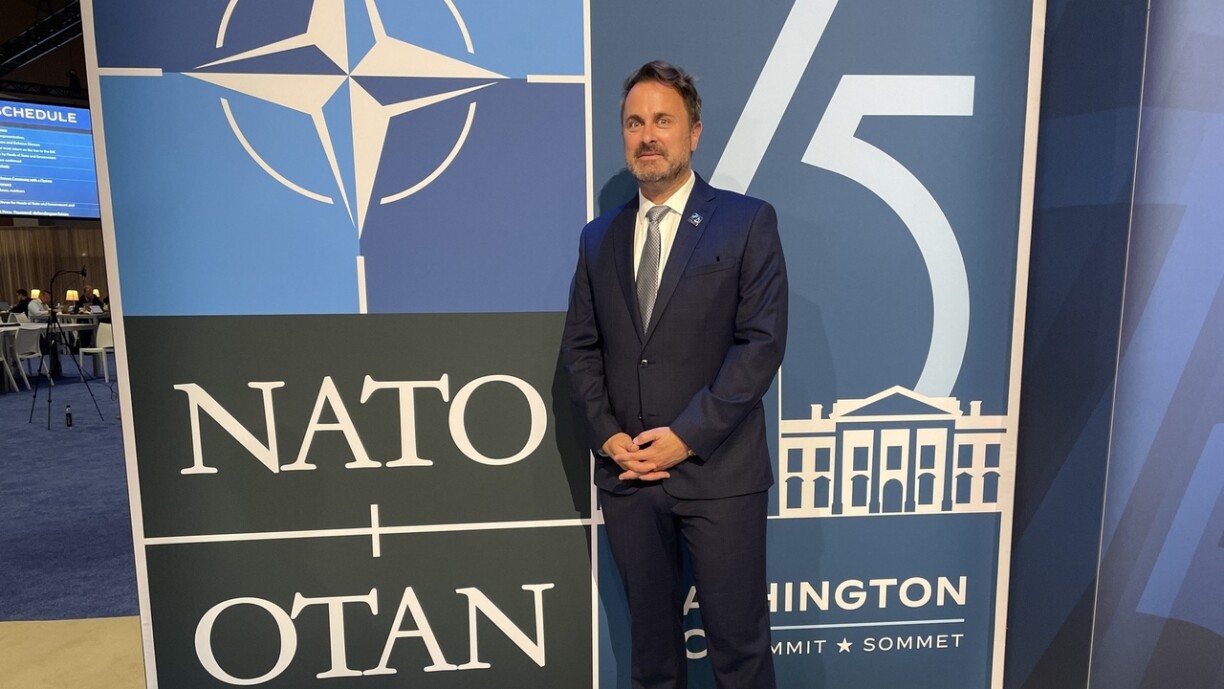
The outcome of negotiations at the 75th anniversary NATO summit in Washington DC were clear after the first day: all 32 member states are committed to increasing defence spending and providing long-term assistance to Ukraine, showing a unified stance against Moscow. Luxembourg’s Foreign Minister Xavier Bettel echoes this sentiment: “It’s terrible, but it’s about showing muscle – not to intimidate, but to show that we won’t yield.”
Among the member countries, two-thirds have pledged to reach the “two percent of GDP for defence” target swiftly. For Luxembourg, this is a significant milestone, as highlighted by the deputy PM: “Others fulfilling this goal often have their own defence industries. It’s easy to invest in your own industry, but we don’t have that. Investing without this advantage means that funds largely flow abroad, except in sectors like satellite technology. It’s therefore important to consider how we invest these funds, as the returns are quite limited.”
NATO is also repositioning its command structures towards the Eastern flank. Secretary General Jens Stoltenberg further announced plans for a missile defence system in Poland, alongside a command centre in Wiesbaden, Germany, with 700 personnel overseeing coordination and material supply for Ukraine. So far, the US have already been coordinating their Ukraine-bound deliveries from the German command centre.
In addition, NATO is committing to training Ukrainian soldiers and ensuring the upkeep of military equipment, with a pledge of at least $40 billion annually. Secretary General Jens Stoltenberg underscored NATO’s role: “We are not a participant in the conflict. We support Ukraine in defending itself. Our goal is to end the war as swiftly as possible, not to prolong it.”
NATO also commits to training Ukrainian soldiers and ensuring the maintenance of military equipment. $40 billion annually is set as the minimum for Ukraine. Jens Stoltenberg emphasised: “NATO is not a party to the conflict. We help Ukraine defend itself. We do not want to prolong the war, we want to stop it as quickly as possible.”
Even though it has not been formalised yet, it is increasingly likely that Ukraine will join NATO, according to Stoltenberg, who argued that the question is not if, but when.